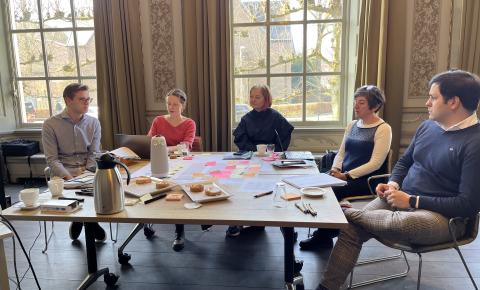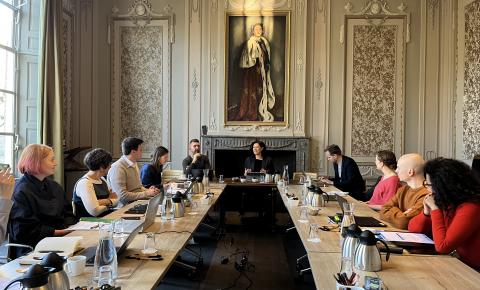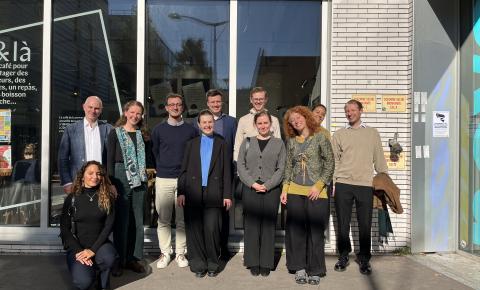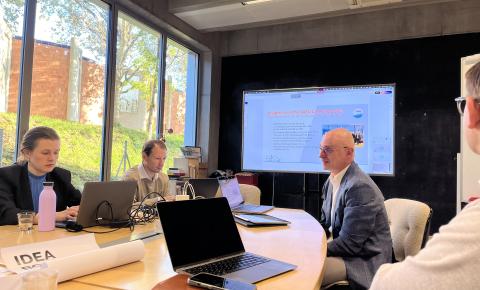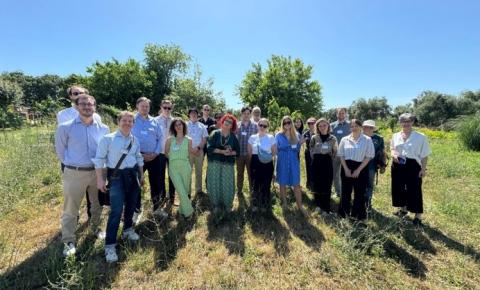Cities of Equality
News
About the Partnership
Launched in January 2024, the Urban Agenda Partnership on Cities of Equality gathers eleven stakeholders from nine countries across different levels of governance and several European Commission directorates to address issues related to equality within cities.
Cities that successfully and proactively foster environments of equality are those that consider the diverse needs of all individuals and social groups. They plan and provide equal opportunities for everyone, irrespective of age, disability, gender, sexual orientation (LGBTQI+), religion and belief, race and ethnic origin (including country of origin), or socio-economic status, ensuring that no one is left behind.
In order to achieve this ambition whilst creating the environments for equality, it is necessary to employ both targeted interventions that specifically benefit marginalised groups and holistic thinking that aims to ensure cities work for everyone. The principle of intersectionality, which acknowledges the overlapping and interconnected nature of various forms of discrimination and marginalisation, will be essential in this endeavour. By considering the unique challenges faced by different individuals and communities, the Thematic Partnership on Cities of Equality will strive for comprehensive and inclusive approaches towards achieving equality within cities.
Thematic Focus
The Partnership will work to strengthen the urban dimension of EU-level regulation and policies, such as cohesion funds and equality strategies, and increase the engagement of all citizens in the design of local services and in public life. The group will explore an intersectional and human-centred approach to policy making with a view to avoid negative externalities that could worsen social and spatial inequalities.
The Orientation Paper of the Cities of Equality Partnership identified two main themes that reflect its members’ expertise and ambitions: “tackling spatial segregation at city and neighbourhood level” and “engaging communities for fair and open access to services in a meaningful democracy”.
Building on the ambitions set out in the Orientation Paper, the draft Action Plan seeks to bring these priorities into action. The Plan lays out three interlinked actions aimed at advancing equality and inclusion in urban areas, grounded in the principles of intersectionality and human-centred policy making. The first action aims to develop a framework for assessing spatial segregation and access to services. The second action focuses on mainstreaming equality criteria into result-based EU funding instruments. The third action gathers and shares innovative practices for citizen participation and co-governance, supporting local authorities in developing inclusive participatory mechanisms.
These actions are conceived as mutually reinforcing and are embedded in a broader strategy that integrates better regulation, better knowledge, and better funding. This systemic approach not only empowers cities to act locally but also seeks to influence EU frameworks by advocating for equality-sensitive policies, funding rules, and governance models.
Creating a framework to assess spatial segregation and access to services
The Action will develop a framework and relevant protocols to collect data and to assess social inclusion, desegregation and equality in their cities on spatial segregation and access to basic and essential services.
Mainstreaming equality in result-based funding instruments
The Action will develop recommendations to systematically integrate equality considerations into performance-based funding instruments. By identifying current limitations and gaps, the action will provide recommendations and practical tools for embedding gender, equality, and non-discrimination criteria into funding design, implementation, and evaluation processes.
Collecting and discussing good practices of equity-attuned participatory governance
This Action will map innovative urban citizen participation mechanisms and case studies illustrating their application in equity-related topics and facilitate interactive capacity building sessions for local governments and other actors.
The Action will develop a framework and relevant protocols to collect data and to assess social inclusion, desegregation and equality in their cities on spatial segregation and access to basic and essential services.
The Action will develop recommendations to systematically integrate equality considerations into performance-based funding instruments. By identifying current limitations and gaps, the action will provide recommendations and practical tools for embedding gender, equality, and non-discrimination criteria into funding design, implementation, and evaluation processes.
This Action will map innovative urban citizen participation mechanisms and case studies illustrating their application in equity-related topics and facilitate interactive capacity building sessions for local governments and other actors.
Explore the Miro board embedded below to view the Draft Action Plan at a glance.
Members
By clicking on the symbol , in the top left corner, you will be able to see the different layers of this map.
National authorities
- National Agency for Territorial Cohesion (ANCT) (FR)
- Austria Tech - Sustainable Transitions Partnership (DUT) (AT)
Regions
- Metropolitan City of Rome Capital (IT)
- Konin Agglomeration Association (PL)
Cities (Urban Authorities)
- Municipality of Varna (BG)
- Municipality of Heerenveen (NL)
- Birzai District Municipality Administration (LT) [Active until February 2025]
- Barcelona City Council (ES) [Active from January 2025]
- Municipality of Komotini (EL) [Active from September 2025]
European/ national city umbrella organisation
- Eurocities (BE)
- ICLEI European Secretariat (DE)
- Council of European Municipalities and Regions (CEMR) (BE)
Other stakeholders
- USE Efficiency Association (UniverCities) (IT)
European institutions
- European Commission Directorate-General for Regional and Urban Policy (DG REGIO)
- European Commission Directorate-General for Structural Reform Support (DG REFORM)
- European Commission Directorate-General for Energy (DG ENER)
- European Commission Directorate-General for Education and Culture (DG EAC)
- European Commission Secretariat-General
- European Commission Directorate-General for Justice and Consumers (DG JUST)
- European Commission DG Directorate-General for Research and Innovation (DG RTD)
- European Commission DG Employment, Social Affairs and Inclusion (DG EMPL)
- European Commission Joint Research Centre (JRC)
Documents
EUI - Call for City-to-City Exchanges
The call for City-to-City exchanges is open on a continous basis.
Check the details and apply to benefit of other city experiences to tackle your sustainable urban development challenges.
Knowledge
View knowledge outputs on Portico
Portico is the European urban knowledge platform developed by the European Urban Initiative (EUI) in support of better urban policy and strategy design, implementation, and mainstreaming.

